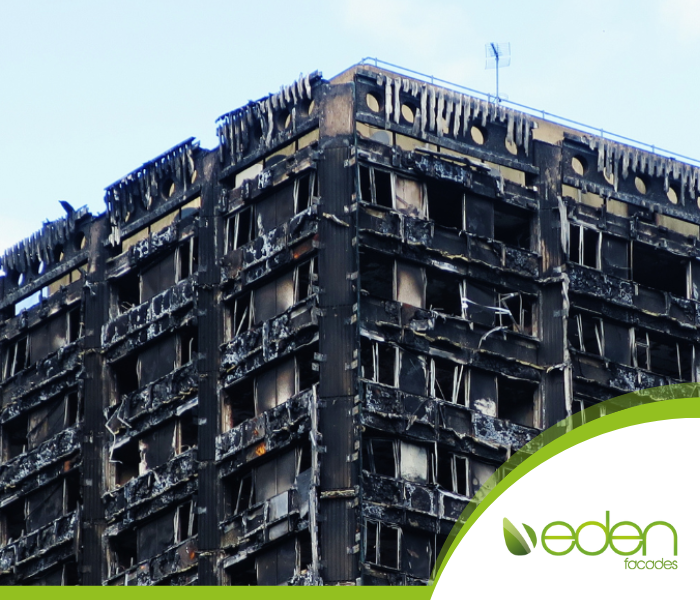It’s been over seven years since the Grenfell Tower fire tragedy. The catastrophic event led to investigations into building safety and recognition of the need for greater accountability within the construction industry.
The Grenfell Tower fire brought to light the necessity for improved fire safety measures in the UK’s construction industry. In response, significant efforts have been made to enhance fire safety practices and prevent similar tragedies from occurring.
In this article, we look at how the industry responded and where progress has been made.
Independent review of building regulations and fire safety
In May 2018, one of the first steps taken in the wake of the disaster was an independent review of existing building regulations and fire safety, led by Dame Judith Hackitt, particularly for high-rise buildings.
The review highlighted several flaws in the existing regulatory system and called for a complete overhaul of the regulations and the introduction of a new regulatory framework that emphasises safety throughout the lifecycle of the building. As a result of this review, the Building Safety Act 2022 was introduced.
The Building Safety Act (BSA)
The BSA marked a pivotal shift in building regulations within the UK and is one of the biggest overhauls in recent history. With the aim of enhancing the safety standards of all buildings, the BSA introduces stricter regulations to ensure buildings are designed, constructed, and maintained safely throughout their lifecycle, safeguarding occupants and avoiding similar incidents in the future.
Efforts to improve fire safety and regulation knowledge
The Grenfell Tower Inquiry revealed deficiencies in fire safety knowledge and regulations, prompting increased training in the industry. Companies are now investing in internal training programs, and professional bodies like RIBA and IFE have expanded their training initiatives.
The government has also backed efforts such as the Building a Safer Future (BSF) Charter, which aims to drive the culture change and action required to improve building safety by making improvements to current practice and behaviours, fostering cultural change in the industry.
Cladding remediation
In addition to these changes, there has been a heightened focus on the safety of materials used on existing high-rise buildings, resulting in the need for cladding remediation on thousands of buildings across the country. The government has initiated various programs, such as the Cladding Safety Scheme, to support the remediation of unsafe cladding on high-rise buildings to ensure the safety of residents and properties.
As a result, there has been a huge uptick in remediation projects, as building owners look to remove unsafe, combustible cladding and replace it with fire-rated solutions.
Tony Hill, Managing Director at Eden Facades, comments:
“Since the disaster, our team have been involved in many cladding remediation projects. Our expertise goes a long way in ensuring that not only the right materials are being used, but that they are correctly installed to manufacturer standards.
“Incorrectly installed cladding systems pose a high risk to occupants of the building in the event of a fire, and choosing a façades installer with a proven reputation is vital to building fire safety.”
But the hard work has only just begun in terms of remediation. According to government figures in May 2024, only 1 in 4 buildings identified in England with dangerous cladding have been remediated to completion. This highlights that there is still a long way to go in terms of safeguarding those living and working in these buildings; something that we have actively been supporting, carrying out remediation works for projects such as Orwell Quay and OrbisEnergy.
Changes for the better – a commitment to building safety
Despite industry changes and over seven years passing, the disaster that resulted in seventy-two people losing their lives is still very much at the forefront of minds; it is a constant reminder of the vital importance of building safety and the reason that as a sector, we must continue to strive towards preventing such a disaster happening again.
Positive actions have been taken across the industry and new regulations such as the Building Safety Act continue to be embedded into the life cycle of a building – from initial design concepts through to construction and maintenance.
At Eden Facades, we have been fully compliant with all industry changes and will continue to adhere to new legislation and industry guidance around building safety.
Tony adds:
“As a facades company, we remain committed to staying abreast of these industry developments and continuously improving our practices to contribute to a safer built environment for all.
“We pride ourselves on our attention to detail and competence, which is why we are approved installers for many suppliers and will continue to evidence our ability to deliver through third party accreditation.”
If you would like to know more about how we’re supporting clients with cladding remediation, or would like our help on an upcoming project, please get in touch on 01268 744199 or email office@edenfacades.co.uk

